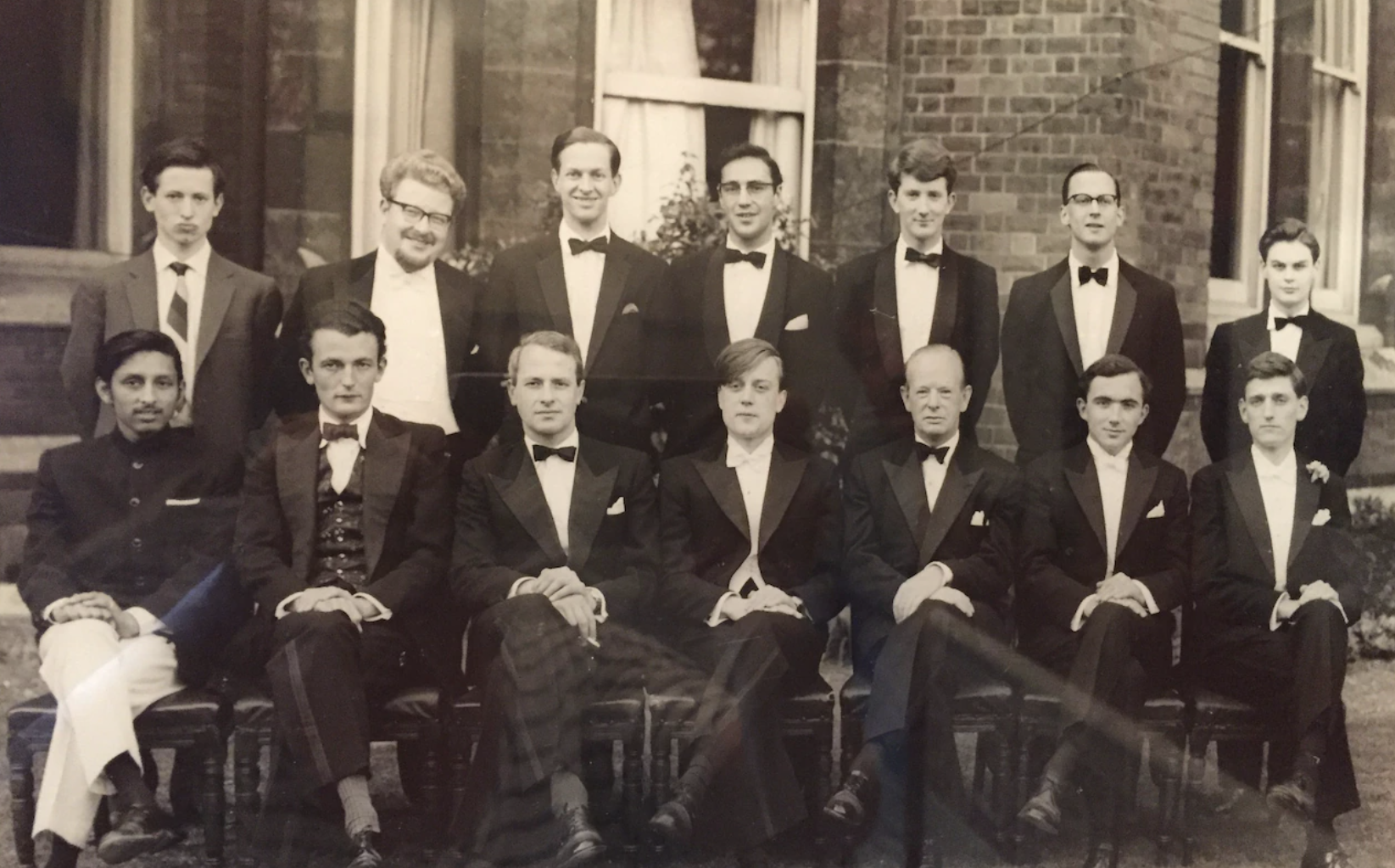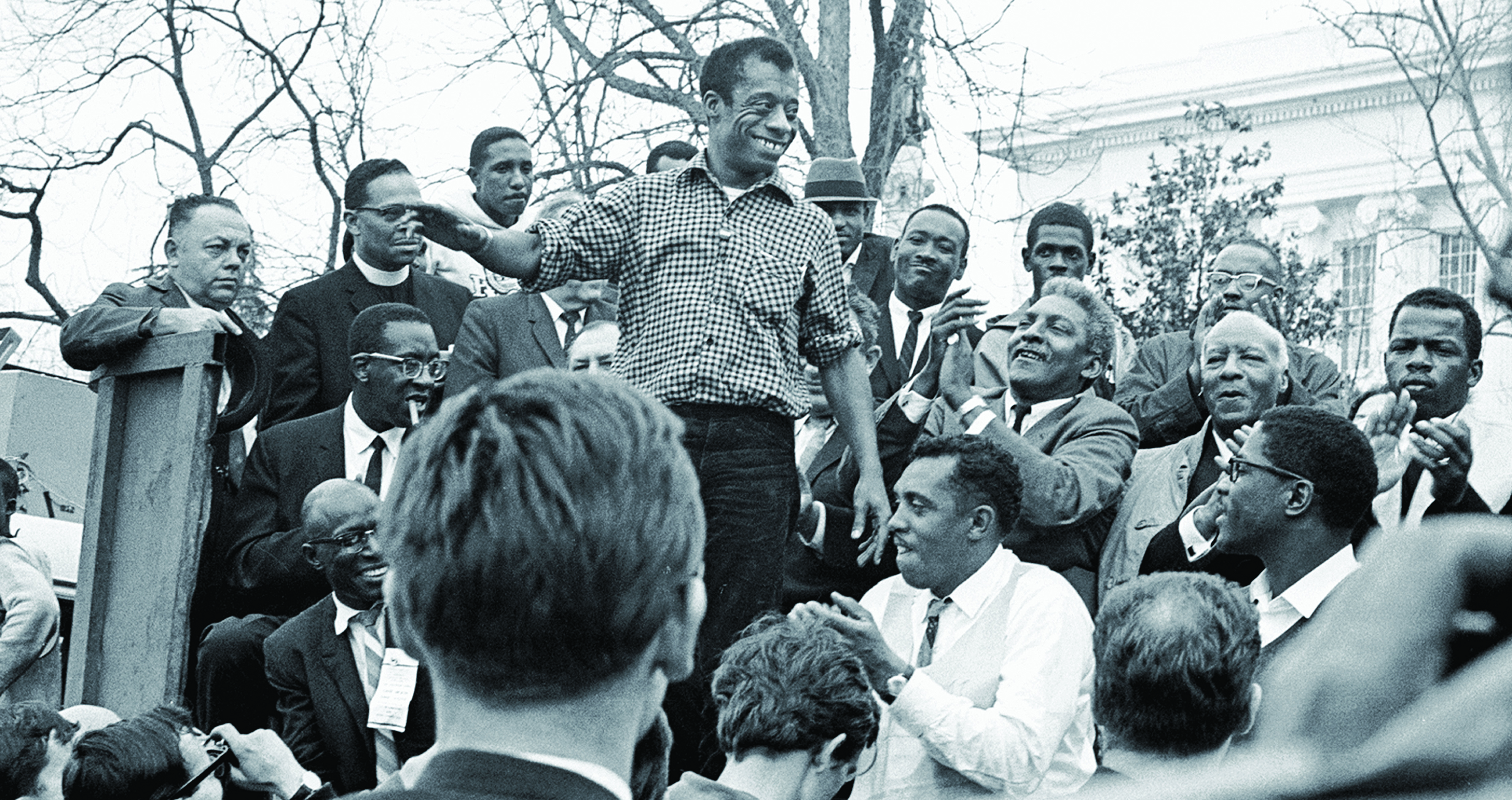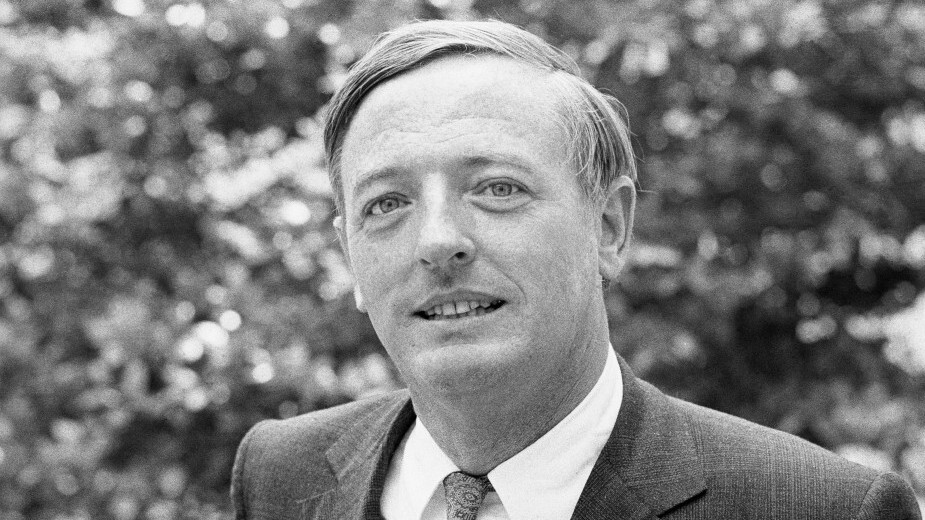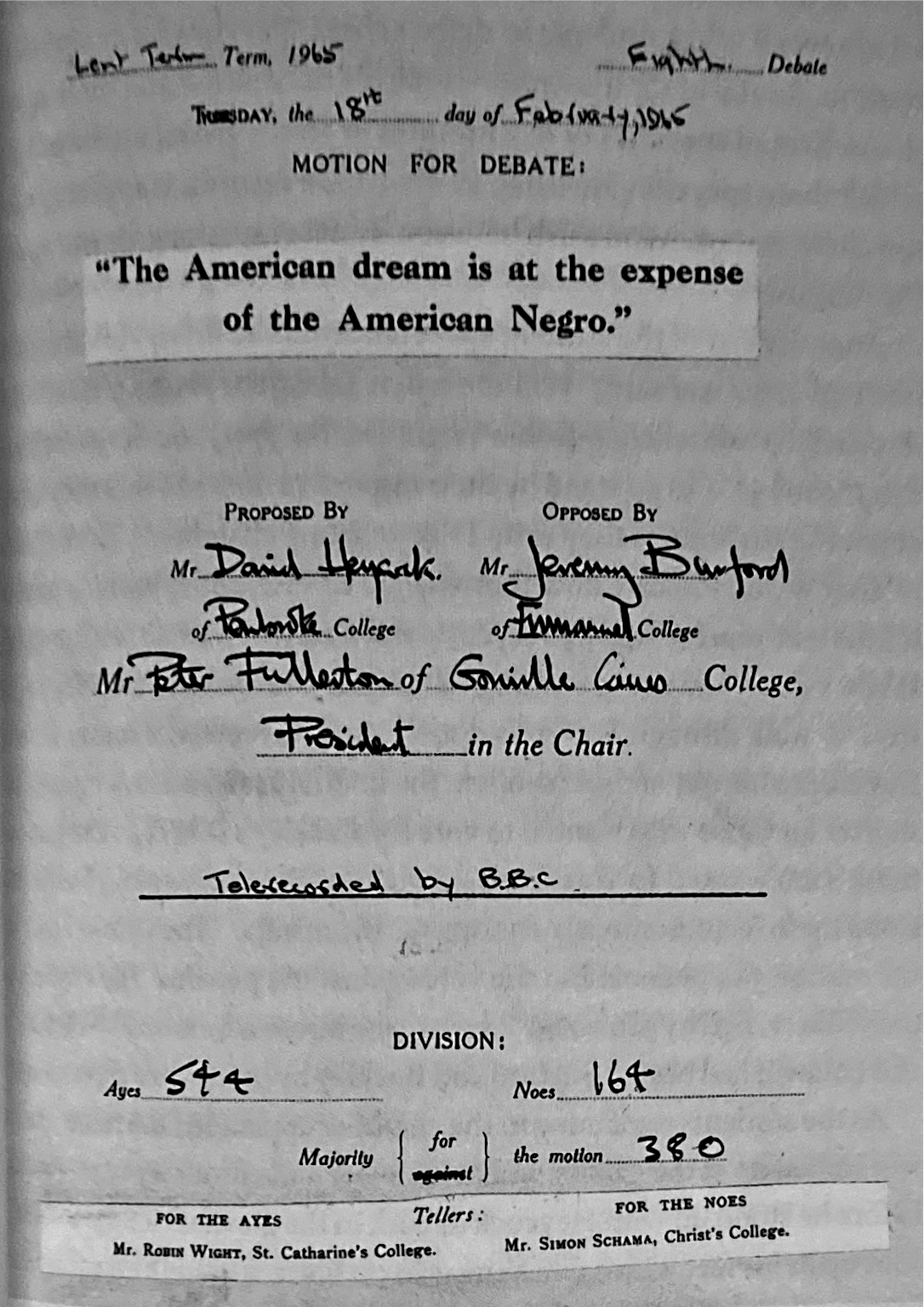The Debate
While Baldwin was in France, a publicist decided to host a debate to promote Baldwin’s third novel. They reached out to Peter Fullerton, the president of Cambridge Union, a student debating society, who agreed to host the debate on February 18, 1965.

Top row, from left: Chris Davis, Alan Watson, John Toulmin, Michael Howard, Peter Fullerton, Ian Binnie, Norman Lamont. Bottom row, from left Mani Aiyar, Richard Moore (father of Charles), Dick Taverne, Ken Clarke, Angus Maude, Chris Mason and Oliver Weaver, Ken Clarke, 1963
Desiring a fitting opponent, Michael Tugendhat, an undergraduate, suggested William Buckley after learning of his white supremacist views that sharply opposed Baldwin’s fervent civil rights activism.

James Baldwin smiles while addressing the crowd from the speaker's platform, after participating in the march from Selma to Montgomery in support of voting rights, March 1965., March 1965, Getty Images

William Frank Buckley, Jr. was an American conservative author and commentator who founded the political magazine National Review in 1955. He died in 2008.,1955, Getty Images
The proposition was “Has the American Dream been achieved at the expense of the American Negro?”. During the debate, Baldwin based the proposition’s response upon the social status of African-Americans and forced the audience to confront the rapes, murders, and harassment of African-Americans that annihilated their self-worth. These messages resonated with the Black community and the civil rights movement, bringing international attention to the African-American struggle in America.
Buckley began by claiming that Baldwin sought to destroy civilization and that African-Americans should be grateful for the pinnacles of American society—the constitutional system and their individual rights. He argued that African-Americans must seize advantage of their opportunities. These messages spoke to the white vigilantes and supremacists of the U.S. and sparked a new strain of conservatism fusing traditionalism and white supremacy.
William F. Buckley V James Baldwin, February 18, 1965, AEON
William F. Buckley V James Baldwin, February 18, 1965, AEON

Baldwin contended that Black Americans could not enjoy the American Dream—the idea that generations would enjoy life without oppresion or die knowing they established the next generation’s foundation. Instead, hopelessness was omnipresent—a constant feeling that nothing they did would save future generations.
Buckley conceded that whites have oppressed African-Americans, but countered that suffering is inevitable, stemming from the natural failure of humans. He claimed that the Black community must accept the “deficiencies” of American life like racism and discrimination.
William F. Buckley V James Baldwin, February 18, 1965, AEON
William F. Buckley V James Baldwin, February 18, 1965, AEON

In the end, 544 undergraduates voted “for” the proposition and 164 undergraduates voted “against”. Baldwin’s landslide victory set the stage for his future diplomatic efforts. Although Buckley lost, he established the groundwork for the new far-right movement.

Cambridge Union Results From Baldwin V. Buckley, February 18, 1965, Cambridge University